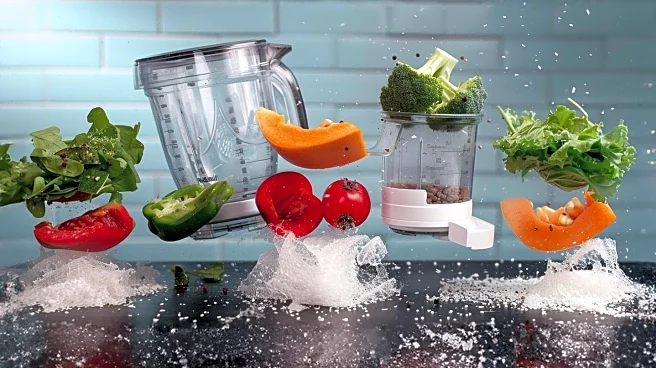What's Happening?
CNET has compiled a list of the best hydrating foods for individuals who dislike drinking water. These foods, rich in water and electrolytes, can help maintain hydration levels. The list includes watermelon, cucumbers, squash, strawberries, lettuce, and citrus fruits, all known for their high water content and nutritional benefits. Registered dietitian Gabriela Barreto emphasizes the importance of hydration and suggests that these foods can supplement water intake, providing essential vitamins and minerals. Barreto also recommends hydration supplements for those with active lifestyles, highlighting the role of sodium and carbohydrates in optimizing water absorption.
Why It's Important?
Proper hydration is crucial for maintaining health and preventing dehydration, especially for those who struggle with drinking plain water. By incorporating hydrating foods into their diet, individuals can ensure they meet their fluid needs while benefiting from the nutrients these foods offer. This approach is particularly beneficial for people with active jobs or those who exercise frequently, as it supports overall health and performance. The emphasis on hydrating foods also reflects a growing trend towards using natural sources to meet dietary needs, which can influence consumer choices and dietary guidelines.
What's Next?
As awareness of the importance of hydration grows, there may be increased interest in dietary strategies that incorporate hydrating foods. Nutritionists and health experts might develop new guidelines or recommendations to help individuals optimize their hydration through diet. Additionally, food companies could capitalize on this trend by marketing products that highlight their hydrating properties, potentially leading to new product lines or reformulations.
Beyond the Headlines
The focus on hydrating foods highlights broader discussions about dietary habits and the role of nutrition in health. It raises questions about the accessibility of fresh produce and the need for public health initiatives to promote healthy eating. As consumers become more health-conscious, there may be a shift towards diets that prioritize natural hydration sources, impacting food industry practices and public health policies.










